Read it all here:
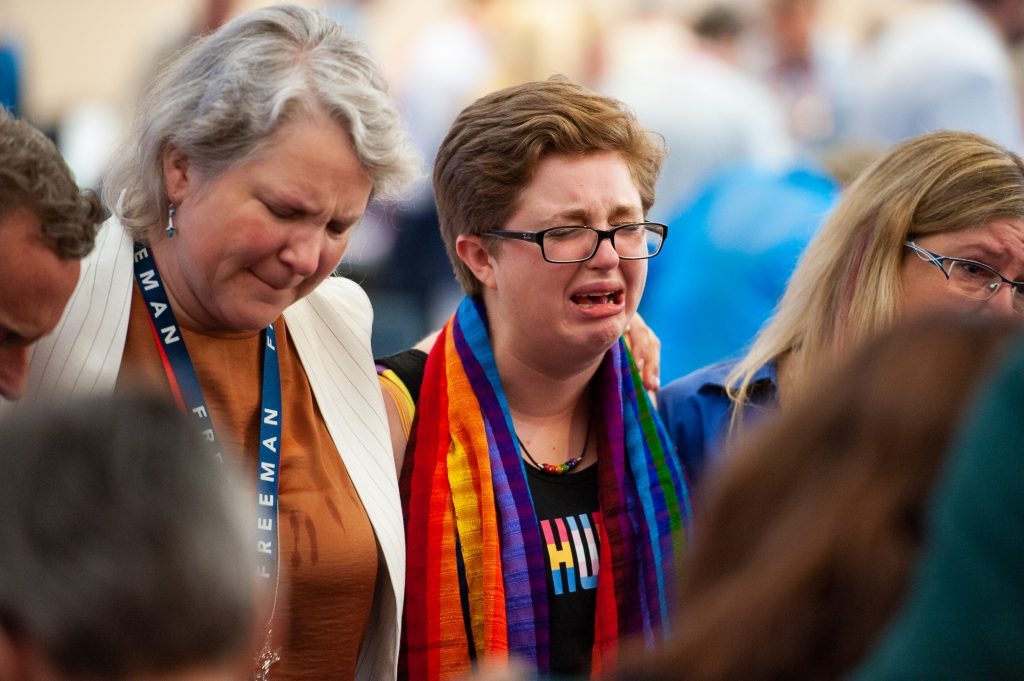 “Our children are crying.”
“Our children are crying.”
That was how Primate Fred Hiltz—paraphrasing the observation of delegate Michael Chartrand—described the pain in the room following the failure of the 42nd General Synod to pass a resolution amending the marriage canon, which would have allowed for the solemnization of same-sex marriage.
“Those words are going to haunt the Anglican Church for a long time,” says Sydney Brouillard-Coyle, a youth delegate from the diocese of Huron who identifies as gender non-conforming, queer and asexual. Though members of General Synod had long been preparing for upheaval after the vote on July 12 no matter the outcome, when the results finally came, the anguish it caused for LGBTQ Anglican youth almost defies description.
Waiting for the vote results to come in, Lyds Keesmaat-Walsh—a member of the Church of the Redeemer in Toronto who identifies as non-binary, agender and transmasculine, queer in their sexuality—and who, like Brouillard-Coyle, prefers they/them pronouns—was “overcome with fear like I have never known before, and I’ve gone through multiple coming-outs.”
When the results appeared, and it became clear that the resolution had failed to secure the required two-thirds majority in the Order of Bishops, Keesmaat-Walsh, 20, felt a grief that they had only experienced once before, when a close friend was killed in a shooting.
“The sound that came out of my mouth was not a sound I knew I could make,” they say. “And I collapsed. I completely collapsed into Bishop Andrew [Asbil]’s chest. I’m very grateful he was there.”
As the tears flowed, seeing a delegate nearby that they believed had not voted in favour of the motion proved too much to bear. “I looked across the table … and I knew I could not stay in this room any longer. And I got up and I fled.”
The pain felt by queer youth delegates may have been particularly intense, but it was not unique. Across General Synod, pain and grief were the overwhelming emotions that followed the vote, both among those who voted for the resolution and those who voted against it.
Even as the church struggled with the aftermath of the vote, new developments suggested that the matter is far from over. Almost immediately after the vote, delegates came up to the microphone to ask what their options were for reconsidering a decision at General Synod. LGBTQ youth delegates led a protest at the next day’s worship service before the election of a new primate. And many voices indicate they will continue their struggle for the Anglican Church of Canada to recognize same-sex marriage.
Before anyone accuses me of not understating teenage girls, let alone “non-binary, agender and transmasculine, queer in their sexuality” girls, let me say, “you’re right, I don’t understand teenage girls”.
But I do have teenage granddaughters and I’ve learned to recognise a tantrum when I see one and I know that giving in to the tantrum is the wrong thing to do.
I remember one of my granddaughters, after wearing herself out shrieking, falling on my shoulder sobbing, “my life is over”. I can’t remember what caused her to make this radical diagnosis and I don’t suppose she can either. I patted her on the back and said, “there, there, it isn’t as bad as all that” while privately musing on whether tantrums were a necessary or contingent aspect of being a teenage girl.
In case anyone is thinking I am heartless and emotionless, let me reassure you, it is not so. Sometime after the rejection of the marriage canon amendment, I too, found myself crying, screaming and running out of the room in despair. It was when Roger Federer lost the Wimbledon final.
To be serious for a moment – now I’ve wiped the tears off my keyboard: adults are supposed to be calmer and wiser than teenagers. No parent in his right mind gives in to teenage tantrums; yet that is exactly what is happening at synod. Since the result of vote has caused so much pain, everyone is scurrying about trying to find a way of having another vote to produce the right result.
It is theology by tantrum :
Options for reconsideration
Following the vote on July 12, delegates went to the microphones and asked what options General Synod had for reconsidering a decision made.
There are two ways synod can do so, Chancellor David Jones explains to the Journal. In the first method, once the discussion of a matter has been concluded, members can ask for reconsideration, which would require a two-thirds majority of the house.
The second method is that members could bring forward a somewhat different motion, but dealing with the same general topic. Because General Synod has now passed the deadline for bringing a motion, rules would require a two-thirds majority of the house in order to commit a late motion.
Since same-sex marriage is a question of doctrine, an objection might be why the Anglican Church of Canada would not require two readings at successive General Synods to re-examine the matter. The answer is that the amending formula, as stated in the Declaration of Principles, only requires two readings at successive General Synods if the resolution is a matter of doctrine in a canon.
The process that led up to the July 12 vote started at the 2013 Joint Assembly with a resolution, C003, to amend the marriage canon so that it would apply equally to all, i.e. both heterosexual and same-sex couples.
“If it hadn’t said ‘amend the canon,’ if it simply said [to] bring a motion that a minister in the Anglican Church of Canada may solemnize a same-sex marriage, it wouldn’t have needed two readings and it wouldn’t have needed two-thirds,” Jones says.
As the chancellor points out in a 2016 memorandum, Canon XXI on marriage does not define marriage, nor does it explicitly prohibit same-sex marriage.
Conservative synod members have criticized this memorandum. Royal, for instance, says that “accepting the chancellor’s memo sets us on a dangerous path as a church, because what it does is it allows us to do things that are not explicitly prohibited in canons. It’s an argument from silence…. That’s a dangerous precedent to set, and I disagree with the chancellor’s memo very, very strongly.” Parsons told the chancellor directly in 2016 that it was “wrong for him to put out that memo.”
Jones, however, insists that such criticisms “are assuming that the canon prohibits [same-sex marriage]. The canon doesn’t. Show me where it does. It doesn’t. Read the canon.”
In light of the canon text, church rules and the fact that 76% of people in the room on July 12 voted in favour of the resolution, Jones draws the following conclusion about the marriage debate: “I don’t think it’s over at all.”
He suggests a number of possible scenarios going forward. Since many dioceses already solemnize same-sex marriages, other dioceses “that have held back…will go ahead” and bless same-sex marriages. A motion could come before the present General Synod while it is still in session, or the matter may come before the next General Synod.
“It may come in a very simple format,” Jones says. “It may simply be that this General Synod declares that a minister may solemnize the marriages of any two persons authorized to marry by civil law.”
 After reading over the article again, I started to suspect this whole episode was a concoction of Titania McGrath. But it can’t be; not even (s)he is that inventive.
After reading over the article again, I started to suspect this whole episode was a concoction of Titania McGrath. But it can’t be; not even (s)he is that inventive.
Like this:
Like Loading...
One of Canada’s largest Christian denominations will spend the next three years considering whether to change its governance structure amid outrage that just two bishops’ votes stood in the way of having same-sex marriage recognized by the Church’s laws.


 A fall in revenues, especially contributions from the dioceses, combined with increased expenses to put the Anglican Church of Canada in a deficit position in 2018, General Synod heard Monday, July 15.
A fall in revenues, especially contributions from the dioceses, combined with increased expenses to put the Anglican Church of Canada in a deficit position in 2018, General Synod heard Monday, July 15.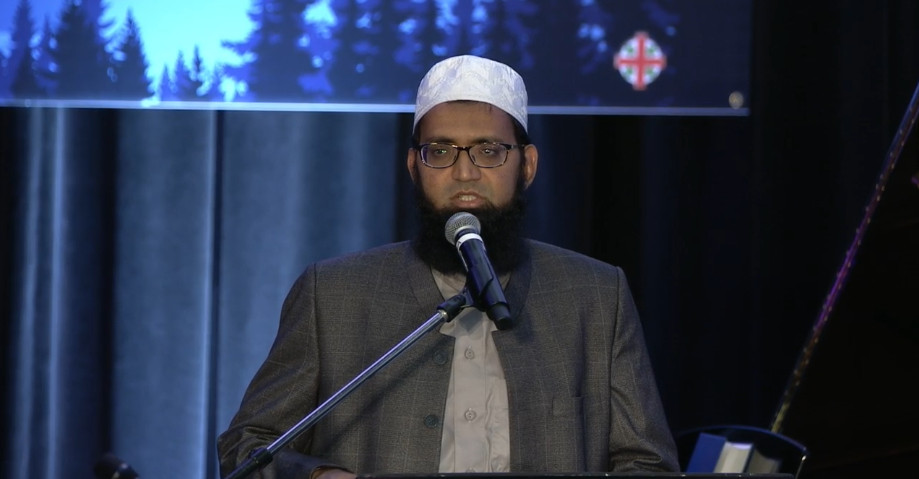
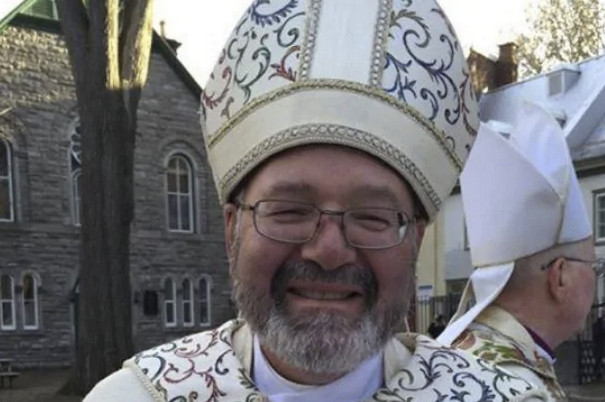 The Anglican archbishop for Nova Scotia and Prince Edward Island has declared he would perform same-sex marriages and permit other churches in his diocese to do the same.
The Anglican archbishop for Nova Scotia and Prince Edward Island has declared he would perform same-sex marriages and permit other churches in his diocese to do the same.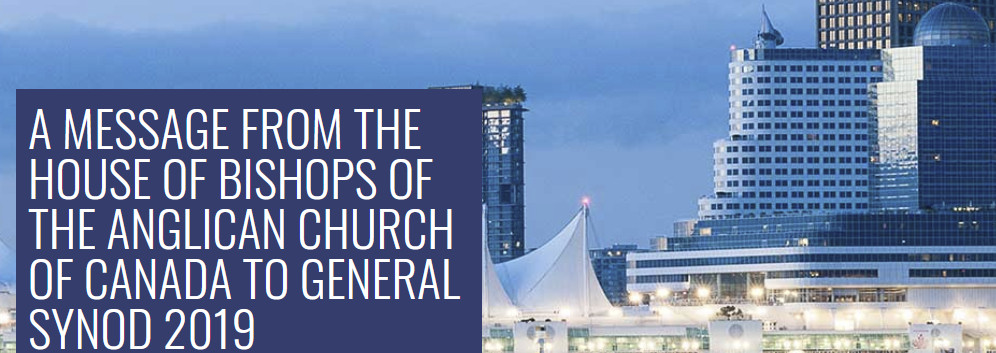 We, members of the House of Bishops of the Anglican Church of Canada, see the pain and anguish inflicted on LGBTQ2S+ people, on members of the General Synod, across the Church, and in the world, as a result of the work and the vote on the matter of Canon 21, concerning marriage. We see your tears, we hear your cries, and we weep with you. We have caused deep hurt. We are profoundly sorry.
We, members of the House of Bishops of the Anglican Church of Canada, see the pain and anguish inflicted on LGBTQ2S+ people, on members of the General Synod, across the Church, and in the world, as a result of the work and the vote on the matter of Canon 21, concerning marriage. We see your tears, we hear your cries, and we weep with you. We have caused deep hurt. We are profoundly sorry.
 “Our children are crying.”
“Our children are crying.” After reading over the article again, I started to suspect this whole episode was a concoction of
After reading over the article again, I started to suspect this whole episode was a concoction of 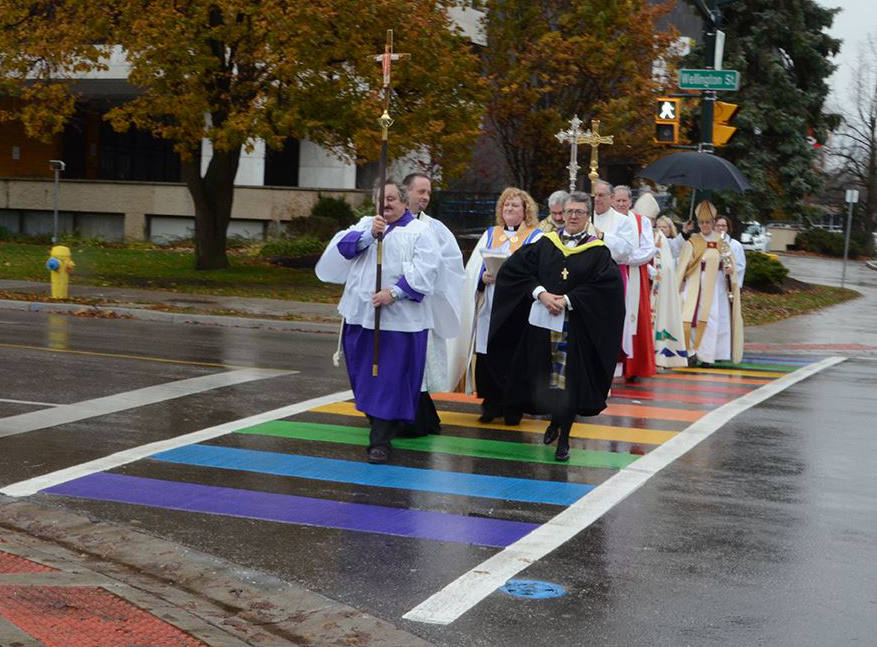
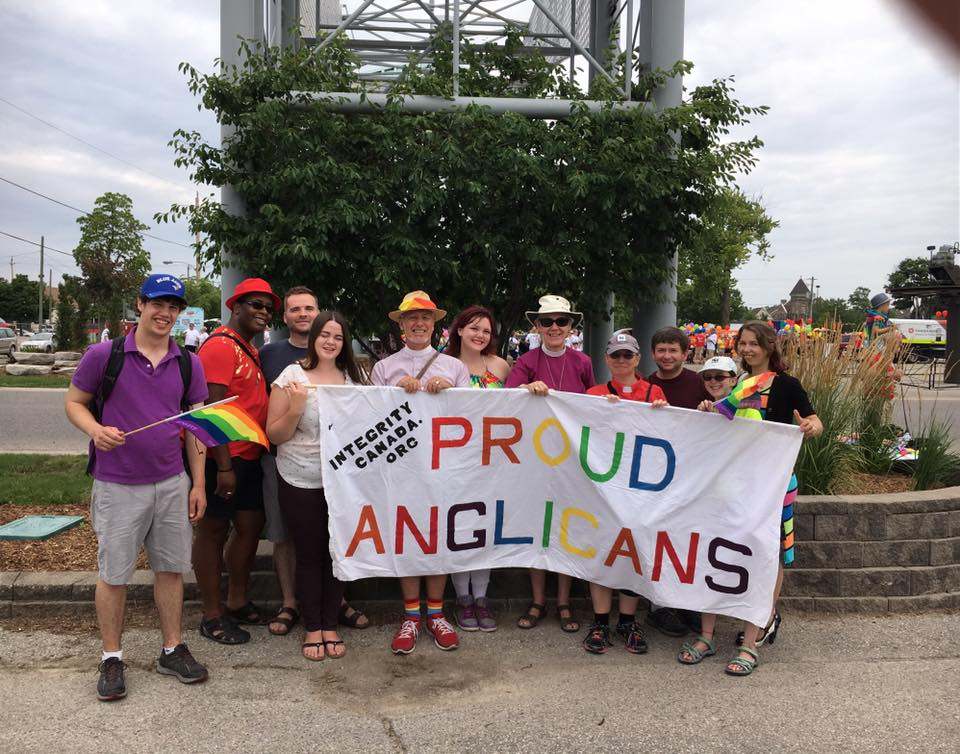
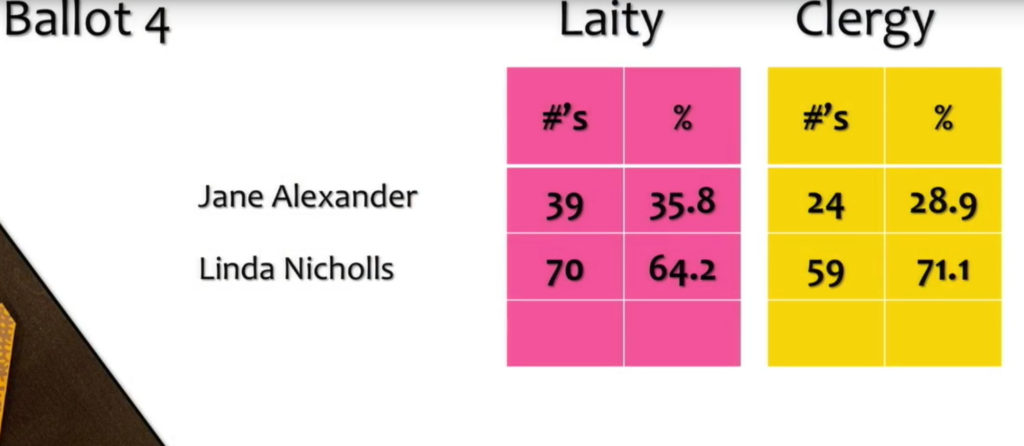
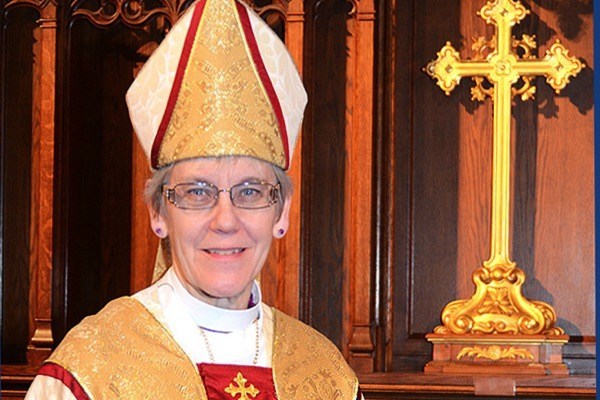
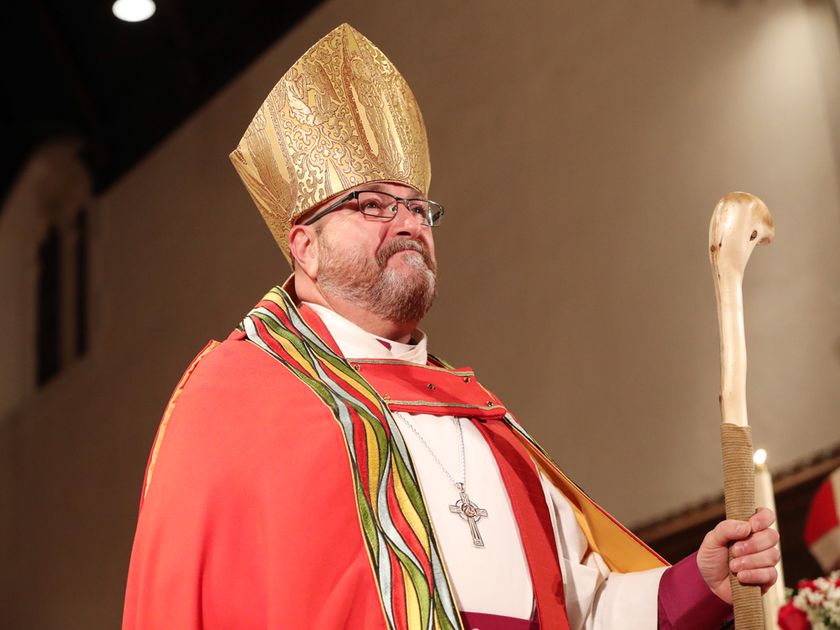 The Chancellor of the Anglican Church of Canada, Mr David Jones,has stated that the marriage canon does not preclude that marriage is between awoman and a man:The Anglican Church of Canada affirms, according to our Lord’s teaching as found in Holy Scripture and expressed in the Form of Solemnization of Matrimony in the Book of Common Prayer, that marriage is a lifelong union in faithful love, and that marriage vows are a commitment to this union, for better or for worse, tothe exclusion of all others on either side. This union is established by God’s grace when two duly qualified persons enter into a covenant of marriage in which they declare their intention of fulfilling its purposes and exchange vows to be faithful to oneanother until they are separated by death. The purposes of marriage are mutual fellowship, support, and comfort, and the procreation (if it may be) and nurture of children, and the creation of a relationship in which sexuality may serve personal fulfilment in a community of faithful love. This covenant is made in the sight of God and in the presence of witnesses and of an authorized minister.
The Chancellor of the Anglican Church of Canada, Mr David Jones,has stated that the marriage canon does not preclude that marriage is between awoman and a man:The Anglican Church of Canada affirms, according to our Lord’s teaching as found in Holy Scripture and expressed in the Form of Solemnization of Matrimony in the Book of Common Prayer, that marriage is a lifelong union in faithful love, and that marriage vows are a commitment to this union, for better or for worse, tothe exclusion of all others on either side. This union is established by God’s grace when two duly qualified persons enter into a covenant of marriage in which they declare their intention of fulfilling its purposes and exchange vows to be faithful to oneanother until they are separated by death. The purposes of marriage are mutual fellowship, support, and comfort, and the procreation (if it may be) and nurture of children, and the creation of a relationship in which sexuality may serve personal fulfilment in a community of faithful love. This covenant is made in the sight of God and in the presence of witnesses and of an authorized minister.